
|
Scooped by
Canadian Vocational Association / Association canadienne de la formation professionnelle
onto Vocational education and training - VET |
Get Started for FREE
Sign up with Facebook Sign up with X
I don't have a Facebook or a X account

| Tags |
|---|
 Your new post is loading... Your new post is loading...
 Your new post is loading... Your new post is loading...
📌CVA/ACFP Newsletter January-February 2024. Meet Our DACUM ANALYSIS FACILITATOR Expert ANGELA RIPLEY
From
cva-acfp
The Newsletter In English https://cva-acfp.org/newsletter/january-february-2024/ In French https://cva-acfp.org/fr/newsletter/novembre-decembre-2023/ #DACUM Calendar 2024-2025 Subscribe to receive our free Newsletter For more information on DACUM or communicate with Mr Pierre Morin, DACUM coordinator at dacum@cva-acfp.org Join our online community - Facebook https://web.facebook.com/cvaacfp - X @cva_acfp https://twitter.com/CVA_ACFP - LinkedIn group https://www.linkedin.com/groups/3603028/ - LinkedIn https://www.linkedin.com/in/cva-acfp/ Become a member of the Canadian Vocational Association here https://cva-acfp.org/membership/
Welcome to the seventh edition of the AI Index Report. The 2024 Index is our most comprehensive to date and arrives at an important moment when AI’s influence on society has never been more pronounced. This year, we have broadened our scope to more extensively cover essential trends such as technical advancements in AI, public perceptions of the technology, and the geopolitical dynamics surrounding its development. Featuring more original data than ever before, this edition introduces new estimates on AI training costs, detailed analyses of the responsible AI landscape, and an entirely new chapter dedicated to AI’s impact on science and medicine. Via Edumorfosis t is increasingly common to interact with products that seem “intelligent”, although the label “artificial intelligence” may have been replaced by other euphemisms. Since November 2022, with the emergence of the ChatGPT tool, there has been an exponential increase in the use of artificial intelligence in all areas. Although ChatGPT is just one of many generative artificial intelligence technologies, its impact on teaching and learning processes has been significant. This article reflects on the advantages, disadvantages, potentials, limits, and challenges of generative artificial intelligence technologies in education to avoid the biases inherent in extremist positions. To this end, a systematic review has been carried out of both the tools and the scientific production that has emerged in the six months since the appearance of ChatGPT. Generative artificial intelligence is extremely powerful and improving at an accelerated pace, but it is based on large language models with a probabilistic basis, which means that they have no capacity for reasoning or comprehension and are therefore susceptible to containing errors that need to be contrasted. On the other hand, many of the problems associated with these technologies in educational contexts already existed before their appearance, but now, due to their power, we cannot ignore them, and we must assume what our speed of response will be to analyse and incorporate these tools into our teaching practice. Most workers who will be exposed to artificial intelligence (AI) will not require specialised AI skills (e.g. machine learning, natural language processing, etc.). Even so, AI will change the tasks these workers do, and the skills they require. This report provides first estimates for the effect of artificial intelligence on the demand for skills in jobs that do not require specialised AI skills. The results show that the skills most demanded in occupations highly exposed to AI are management and business skills. These include skills in general project management, finance, administration and clerical tasks. The results also show that there have been increases over time in the demand for these skills in occupations highly exposed to AI. For example, the share of vacancies in these occupations that demand at least one emotional, cognitive or digital skill has increased by 8 percentage points. However, using a panel of establishments (which induces plausibly exogenous variation in AI exposure), the report finds evidence that the demand for these skills is beginning to fall.
From
www
This report delves into a comprehensive exploration of AI capabilities, use cases, affordances, and implications. Highlighted below are the key takeaways, summarizing the most critical aspects and insights: AbstractPurposeThis study aimed to evaluate the potential of artificial intelligence (AI) as a tool for knowledge synthesis, the production of written content and the delivery of coaching conversations. Design/methodology/approachThe research employed the use of experts to evaluate the outputs from ChatGPT's AI tool in blind tests to review the accuracy and value of outcomes for written content and for coaching conversations. FindingsThe results from these tasks indicate that there is a significant gap between comparative search tools such as Google Scholar, specialist online discovery tools (EBSCO and PsycNet) and GPT-4's performance. GPT-4 lacks the accuracy and detail which can be found through other tools, although the material produced has strong face validity. It argues organisations, academic institutions and training providers should put in place policies regarding the use of such tools, and professional bodies should amend ethical codes of practice to reduce the risks of false claims being used in published work. Originality/valueThis is the first research paper to evaluate the current potential of generative AI tools for research, knowledge curation and coaching conversations. Artificial intelligence (AI) can significantly contribute to the implementation of the United Nations Sustainable Development Goals (SDGs) by offering innovative solutions and enhancing the efficiency of processes aimed at achieving these goals. There is a perceived need for studies which may look at these connections. Against this background, this paper reports on a study that investigated the connections between artificial intelligence and the implementation of the UN Sustainable Development Goals (SDGs) at higher education institutions. The paper deployed a multi-methods approach. The first one was a bibliometric analysis of publications in the topic. The second method used was an assessment of a set of case studies, that illustrate how artificial intelligence is being deployed among a sample of universities in support of efforts to implement the SDGs and a survey aimed at identifying current and future trends. The data gathered allow some trends to be identified. For instance, that there is a wide range of applications of AI to sustainability in High Education Institutions (HEI), to be chosen in terms of campus operations and greening, outreach and community engagement, research, teaching and learning, and university management. Also, the paper has identified successful examples of the deployment of AI in various sustainability contexts, illustrating what are the success factors for them. Moreover, the survey identified the fact that the use of AI is quite widely spread, and is likely to increase in coming years, due to a greater demand. Finally, AI also poses several challenges, such as authenticity and ethics in assessment (case studies), ‘lack of access to software/materials’, and ‘lack of information technology training for myself/my colleagues’ (survey). Overall, AI offers a powerful toolset to accelerate and enhance the implementation of the UN SDGs. By analysing vast datasets, predicting outcomes, optimising processes, and providing new insights, AI has the potential to address complex sustainability challenges across various sectors.
In this research, we discuss the results of a survey of 221 Canadian start-ups and 17 interviews with company leaders and experts to understand how ventures are using or exploring using generative AI and the challenges they’re facing in adopting this technology.
From
fsc-ccf
KEY INSIGHT #1
From
news
Jobs and the economy
From
www
Skills development initiatives can help prevent conflict and strengthen peace in fragile and conflict-affected contexts. If designed or adapted appropriately, they can strengthen inclusive social dialogue and trust between groups and increase people’s sense of inclusion and their resilience to disruption and violence, through increased employability. Peace can be achieved by adopting peace and conflict analysis, conflict- and gender-sensitivity measures, a social dialogue- based approach, and a strong focus on fairness and inclusion.
From
www
AI can bring significant benefits to the workplace. In the OECD AI surveys of employers and workers, four in five workers say that AI improved their performance at work and three in five say that it increased their enjoyment of work. But the benefits of AI depend on addressing the associated risks. Taking the effect of AI into account, occupations at highest risk of automation account for about 27% of employment in OECD countries. Workers also express concerns around increased work intensity, the collection and use of data, and increasing inequality. To support the adoption of trustworthy AI in the workplace, this policy paper identifies the main risks that need to be addressed when using AI in the workplace. It identifies the main policy gaps and offers possible policy avenues specific to labour markets. |
Reinvention works. It’s achievable. It’s actionable. And AI and generative AI are super-charging progress for organizations that embrace it. Go beyond transformation — act now to pull ahead of the pack. There is a growing trend among employers to hire individuals based on their skills and alternative credentials, which has led to an increased interest in obtaining micro-credentials by potential employees. The interest in micro-credentials is rapidly growing, and universities are taking notice by offering them independently or in collaboration with other providers. Some universities have released guidelines on how micro-credentials will be recognised and integrated into degree programmes. Some are even combining them to lead to a degree.
Currently, Industry 4.0 (I4.0) represents a paradigm shift that is redefining manufacturing processes globally through the integration of advanced technologies in all aspects of production.
This research not only highlights deficiencies in current training but also emphasizes the urgent need to adapt educational curricula to close these competency gaps and effectively prepare future professionals for the challenges of Industry 4.0. Via LGA
From
research
Abstract About 50 percent of all Dutch students enroll in a vocational education program. All efforts of vocational institutes are aimed at guiding students towards a diploma; yet, on average, about 28 percent of the students drop out. AbstractPurpose
Continuing, professional, and workforce education units play a pivotal role in assisting colleges and universities navigating the complexities of today's higher education landscape. This includes meeting the growing needs of adult learners, whose significance and requirements are continually evolving, as well as augmenting revenue streams.
Room For Improvement
Access to Data 48% do not know enrollment numbers for their online and professional education units.
Bridging the Gap
From
fsc-ccf
KEY INSIGHT #1 This leaflet provides an overview of the BEAR III project’s activities from 2023 to 2027 in four West African beneficiary countries: Côte d’Ivoire, Ghana, Nigeria, and Sierra Leone, emphasizing its expected impacts. The document outlines targeted sectors in each country, focusing on enhancing the quality and relevance of TVET programmes to better appeal to youth, businesses, and society. At the core of the project is the adoption of a sector skills development approach, with efforts concentrated on key economic sectors identified in collaboration with national governments and TVET stakeholders to align with strategic agendas. Artificial intelligence is a machine’s ability to perform some cognitive functions we usually associate with human minds.
This research report presents six case studies of universities in different regions of the world and offers insights into the practical implementation of lifelong learning in the higher education context. It examines regulations and strategic frameworks that support universities’ commitment to lifelong learning, describes how they are responding to new learning demands, and provides examples of specific programmes and initiatives that promote lifelong learning. The report also discusses the challenges these institutions face and how they are addressing them. The case studies were developed as part of a joint research project between the UNESCO Institute for Lifelong Learning and Shanghai Open University on the contribution of higher education institutions to lifelong learning. It is published concurrently with the results of an international survey on this topic (UIL and SOU, 2023) and supplements the quantitative survey data with relevant qualitative research.This report constitutes a valuable resource for policy-makers, higher education leaders, educators and other stakeholders engaged in promoting lifelong learning. The findings presented in this report are conceived as a source of inspiration to further expand and enrich the contribution of higher education institutions to lifelong learning to better serve communities and learners.
How artificial intelligence (AI) will affect learning is a hot topic that some educators view with fear, suspicion, and panic. In fact, many schools have completely barred machine learning from classrooms when they should be harnessing its power and embracing it instead. Via Edumorfosis In this research, we examine the results of interviews with nurse educators, nursing experts, and recent nurse graduates to determine how the pandemic-driven move to virtual study affected the delivery of experiential learning. Artificial general intelligence (AGI) is a theoretical AI system with capabilities that rival those of a human. Many researchers believe we are still decades, if not centuries, away from achieving AGI. |



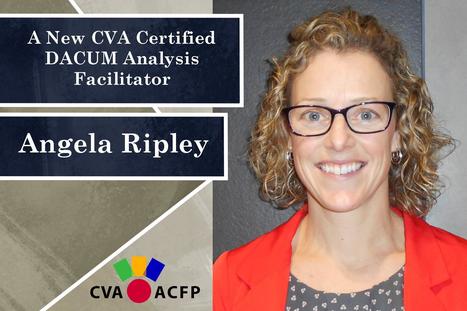
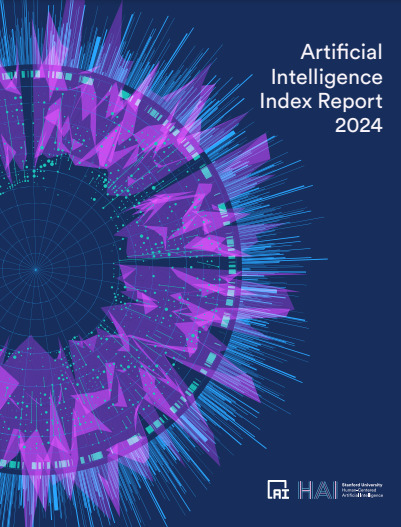




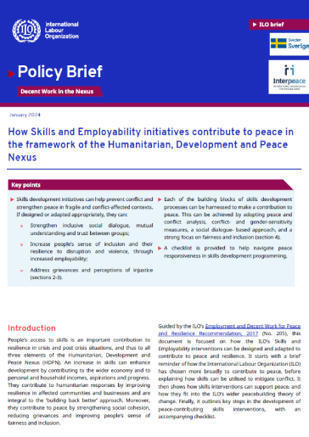


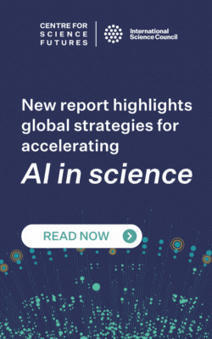

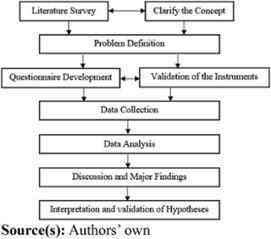
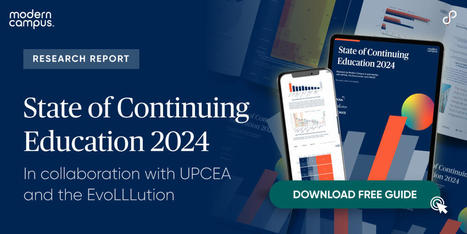

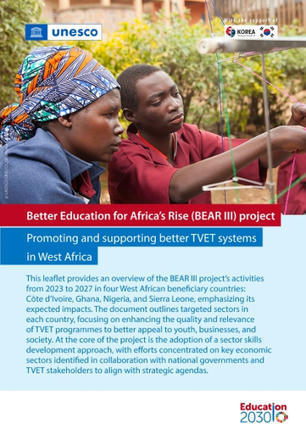
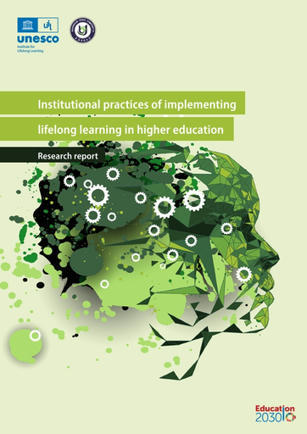







This case study of UK teacher-training for vocational trainers highlights the tensions between the professionalization of the teaching workforce and the skills and expectations of vocational trainers.
http://www.adulterc.org/Proceedings/2011/papers/morris_gildersleve.pdf